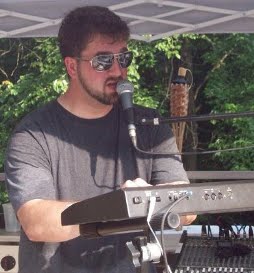After six and a half years in the classroom, I have spent three and a half years on special assignment, first as a coach for the Classrooms for the Future grant, then as a learning coordinator for technology integration and several content areas, and now as a K-12 coach for technology. I have always planned to return to the classroom and teach English and Creative Writing again someday, so I look at the past three and a half years as some of the best, most intensive, non-stop professional development any teacher could ever hope to obtain. I often think of how I will apply to my students everything I have learned from seminars, conferences, courses, and most of all, from teaching over 700 of my colleagues in training sessions for our district. Like many educators know, the best learning occurs when one learns something in order to teach it. I have probably developed during my time out of the classroom tenfold my learning as an undergrad English major and a grad student in English and education. The only time period in my life where I have learned a comparable amount would have to be my time in the classroom, getting that experiential learning that comes from actually being on the job, particularly in the first three years or so. But even the learning from that time period pales in comparison with the learning from these most recent months, when my full-time job has been to research solutions to problems with technology and education, and help teachers and students overcome them.
While conducting a training session yesterday, I shared a particular software and its accompanying hardware with a group of 18 colleagues. It was something new to our district, and I had only used it myself a handful of times. I told the participants in the session that, while I was confident I could do a good job of instructing the session and guiding them to the answers they sought, I was not an expert in this particular area. Instead, I shared what I had learned and figured out, and then we worked together to figure out how to do the many things that individual teachers wanted to learn. We used a wiki page to synthesize our knowlege, and every participant spent a lot of time using the software and hardware to create lessons they would use in their own classrooms. After the session, several participants told me they got a lot out of watching me work through problems we encountered with the new technology, and they enjoyed being able to participate in figuring it out.
I've had this experience several times before in my life:
I was able to make a big impact when I coached a 7th grade baseball team because I struggled myself as a baseball player. I was never a star at any level, but always able to work my way up to competing at the next level, eventually pitching in college. My own hard work and the adversity I faced in baseball was always fresh in mind for me when coaching others.
On the flip side, I do not feel as skilled when it comes to instructing a beginner at skiing, because this is a sport that came naturally to me, so I didn't have to be as cognizant of my own learning, and probably am not able to be as meta-cognative with my methods as I attempt to teach others.
In the English classroom, I was a great mentor for my students in areas of organization, planning, presentation, and other skills I had to teach myself as a learner. In these areas where I was not naturally gifted, I was a far better guide for my students.
I see myself as much weaker, however, when it comes to instructing grammar, sentence structure, and writing, which were all innate skills I don't remember ever having to apply much work to learn myself.
It has been a huge advantage to me as a technology coach to have NOT been a "tech-savvy" person by nature. I learned first from my students, and then from researching questions as I needed to answer them, applied to real-world situations (like teaching a program or website, etc., to a colleague in need).
Similarly, as a teacher, I noticed that my lessons went much better the 2nd or 3rd time through teaching them than they did the 6th or 7th time. I was actually more effective earlier on with teaching a topic or skill than I was after more practice. I think this is because the first attempt was a "warm-up," but the next few really enabled me to demonstrate my thought processes as a learner along with my students. By the time I was an "expert" in a topic, I was already forgetting what it was like to be a first-time learner, and my delivery actually suffered the more I learned.
So how will I use this as a tech coach? As a teacher? As a ski club advisor? With fellow musicians in my "other" job? With my own children? I have to find ways to allow for discovery to take place by learners right when they need it, and directly focused on how they will apply it.
Teachers, do not fear using a new technology (or several simultaneously) with your students before you have mastered it yourself. Instead, master your craft of teaching, managing the classroom, and focusing on the final skills you want your students to master, and be comfortable in your lack of expertise with the tools your students may use to develop those skills.

No comments:
Post a Comment